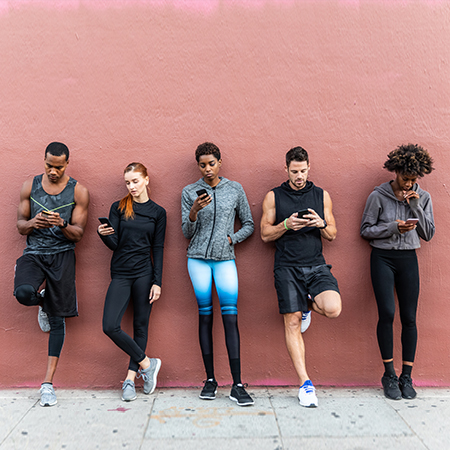The fashion industry is one of the industries that have an eye for the future. It is one of the sectors that is going through continuous changes. While fashion has been continuously evolving, retail markets are still struggling to get a fair amount of footfall in the various stores and outlets. It is not only a healthy practice but a matter of survival to match up with the latest trends and sentiments of the people.
How can we not discuss the elephant in the room? Yes, it’s all about those comfy pyjamas which you haven’t changed for two days and are probably contemplating if you can pull a third day too. Personal attack, much?
How is the fashion industry tackling this? Can fashion regain its stature? What are the new trends like?
Sustainable Fashion
“Pre-owned and pre-loved” read the bio of the eleventh thrift account that I found a request to on Instagram. I am sure that you might have witnessed the surge of thrift stores during the pandemic. Started off as a sustainable fashion mission, this trend saw a tint of personal interest but does that matter? I will that to you.
The fashion industry drew heavy criticisms for its unsustainable nature and its impact on the environment. The industry has been also facing continuous challenges to providing a healthy setup for its workers in developing or underdeveloped nations. Can you forget about the inhumane treatment H&M workers in Bangladesh had to go through?
Fast fashion is seeing a decline. Brands are now picking up a ‘sustainable’ image and identity for themselves. As per 2018 research, 88% of customers in the UK and the USA wanted the brands to help them be more environmentally friendly.
Did you know, the Fashion industry is responsible for 10% of the world’s carbon emissions. Various brands have taken note of this and are trying to reach a carbon-neutral stage. Like Levi’s, H&M Conscious, People Tree and more.
Did you know that People Tree is a pioneering name and one of the first sustainable fashion brands? It is the only brand credited by the World Fair Trade Organization. It invests heavily in sustainable practices.
Athleisure wear and simplified brands
Cut the clutter goes the fashion industry. The work from home culture is taking on mainstream and is here to stay. Ritu Kumar lately launched ‘Label Basics’ to cater to the trend of work-from-home, athleisure wear. The brand is largely targeting the younger age group.
The high street fashion industry is slowly evolving itself to suit the needs of the millennials and Gen Z.
H&M too launched its collection by the name “The Comfort Zone”. The official website reads “Staying comfortable at home is a must right now. Whether you’re cozying up on the couch or working from home, find the loungewear that’s perfect for your style. From classic joggers and leggings to silky pajama sets, our comfy collection is packed with clothes to help you relax all day long. Choose from knitted sweatsuits, matching sets and more.”
Due to the pandemic, UNIQLO introduced the Shop-from-Home service to deliver products to people in more than 17,000 pin codes in India. A very local specific brand would work great in such times.
Forever New is planning to launch a relaxed and casual line this summer season for consumers working from home. As reported by Financial express the company claims that sales from online accounts for about 25-30% of its overall business, which is up from 15-20% pre-pandemic.
These are just a few brands to name but the wave is huge. Also, not to forget there are various professionals that talk about how dressing up helps them perform better at work. It also helps them distinguish between work and home. It was promoted as one of the productivity tips to keep a work-life balance while working from home.
With consumer behaviour taking a major shift, athleisure might be in the trends for longer than expected.

